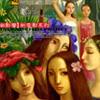History in the remaking
Updated: 2008-04-22 16:41

Heavenly Dynasty 1900 is about China's history at the turn of the 20th century.
More than 160 performers, a three-level traditional Chinese block-bracket structure, Peking Opera, acrobatics, martial arts, ballet, choir and videos are all packed into the National Theater of China's latest production, Heavenly Dynasty 1900.
Adapting Li Longyun's 826-page Heavenly Dynasty Upper Nation (Tianchao Shangbang) is a difficult task for any director. The original text explores the social issues and the innate weaknesses of Chinese people at the turn of the 20th century.
In 1900, China, which was ruled by the Qing Dynasty, was a nation in decline. The glory days were behind her. It was heavily controlled by foreign nations who dominated ports such as Shanghai and Tianjin. The Manchu imperial family, a highly conservative court led by the Empress Dowager Cixi, did not pursue reforms, which they thought would weaken their power.
By 1900, the rebellion organized by a movement called Yihetuan, or Boxers' Uprising, had started to spread across northern China. Cixi managed to win them over and encouraged them to attack the foreigners. The army of the dynasty collaborated with the Yihetuan to lay siege to the embassy area for two months, defeating the Europeans. Then an eight-nation force invaded China, extensively damaging the looted Peking and forcing the Qing Dynasty to pay enormous compensation.
Writing a novel on this period was a hard task for Li when he was asked to do so in 1985.
Lao She (1899-1966), the late renowned Chinese playwright, once wrote an autobiographical novel on this subject but could not finish it before he died. So Yu Shizhi, the renowned Chinese actor, asked Li to continue Lao She's work. But it was difficult because "what he wrote was just the beginning of a big work and of the story of his family."
"It was a time that the nation suffered most and the people exposed their soul, weakness and personalities," says Li who finally finished Heavenly Dynasty Upper Nation in 1999.
|
||
|
||
| Eating out:
Always authentic
Bars&Cafes: Invisible senses Weekend&Holiday: American classic gets a Chinese makeover Shopping: French style What's on: More than a textbook hero |
|
||
| Eating out:
Gastronomy grabs headline
Bars&Cafes: Southern barbarian Weekend&Holiday: Songs of Serenity Shopping: Suspect cheese not on sale What's on: Hollywood classics are back |



